Shaking her head, Brigitte looks at her teenage children in despair. She turns away as tears fill her eyes. In the last two years she’s gone from being a high-flying team leader in an insurance company to almost housebound, with barely any interest or energy to see anyone or do anything. The reason? She’s suffering from climate depression. But this is no ordinary depression. It’s been fueled by her worries about the climate crisis and her dread of the future.
‘Every time I hear the children planning ahead, talking about going to university, or jobs they’d like to do, I wonder what their future holds, if there will be a planet for them and if they’ll be victims of disasters, like flooding,’ confides Brigitte, who’s 48, and mum to Sam, 16, and Becca, 13.
‘Ever since they were little, I’ve wanted to keep them safe. But now the climate crisis is here and it’s beyond my control. I feel hopeless and helpless. There’s nothing I can do and it feels like it’s slowly eating away at me. I’m off work more than I’m in the office and some days I can barely get further than the sofa.’
For some it manifests as anxiety, with panic attacks at the thought of losing their homes and livelihood in a flood, food running out and life-threatening heatwaves and wildfires. But for others it becomes depression
Like Brigitte, who lives in Dubai, more and more people across the world are now impacted by the threat of a climate disaster. For some it manifests as anxiety, with panic attacks at the thought of losing their homes and livelihood in a flood, food running out and life-threatening heatwaves and wildfires. But for others, like Brigitte, it becomes climate crisis depression, a cloud constantly hovering, and a problem too enormous to tackle.
‘It’s like the enemy is too huge to conquer so what’s the point in doing anything at all?’ asks Brigitte. ‘On my really bad days I think whatever I do it might not be enough. We might as well call it a day now.’
Climate Depression
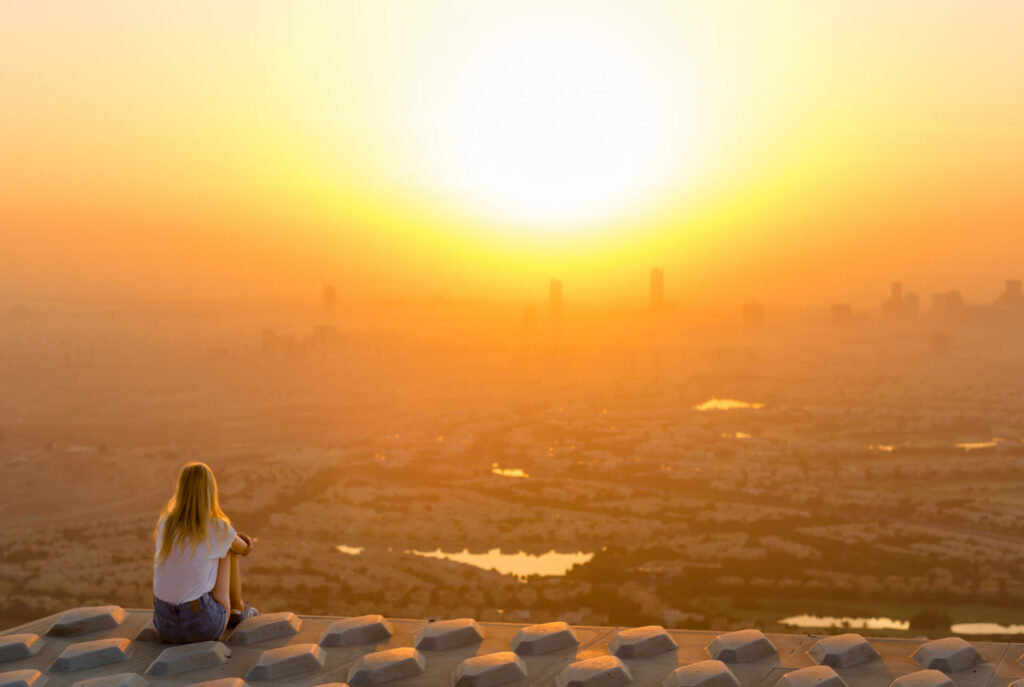
Megan Kennedy-Woodard co-founder of UK-based Climate Psychologists, says many clients are suffering from depression about the climate crisis.
‘Often, when people first come to realise the extent of the danger that we’re in, it can feel overwhelming,’ says Megan, co-author of Turn the Tide on Climate Anxiety (Jessica Kingsley Publishers). ‘This can result in feelings of climate crisis depression, doom and apathy. Some people find it difficult to engage socially, sleep, work and interact with others. They experience panic and despair.
‘It can feel like everywhere we look, we see the negative impacts we humans are having on the planet. Even going out into the street can trigger feelings of depression, anxiety or anger because we might see someone leaving their car with the air conditioning on full blast and the windows down or we might notice flowers are blooming earlier than they should. This means it can be hard to enjoy life and we might avoid situations that trigger us.’
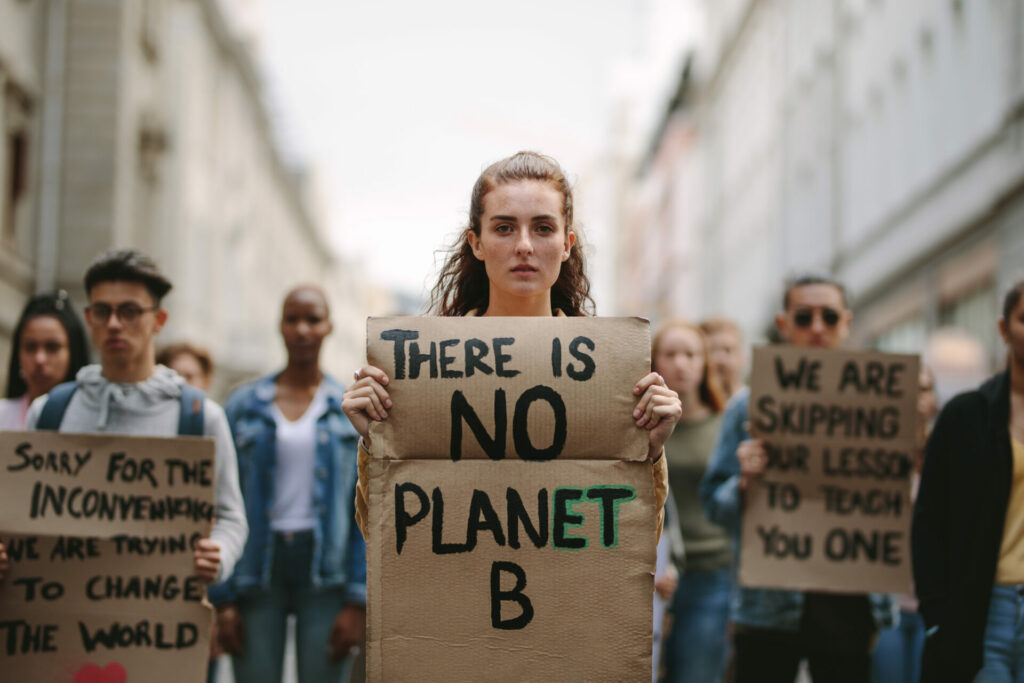
And even those who summon up the energy and enthusiasm to do their bit can feel inadequate. Compared to the threat we’re facing, as individuals we all feel too insignificant to make any kind of difference at all. Picking up our litter, using solar panels to heat our water, growing our own fruit and veg, cutting down on single-use plastics, and eating a vegan diet seem like small drops in the ocean when we’re talking about the climate crisis.
But small changes can make a difference and are we all at risk of this kind of depression, or are some people more likely to be affected than others?
Climate Psychologists
According to Dubai-based coach Amanda Davies, climate crisis depression will probably strike those with the most to lose.
‘Parents tell me they worry constantly. Some are extremely frightened for the future,’ says Amanda, who runs Pinnacle Life Coaching. ‘They’re afraid for what the world will be like for their children and whether there will even be a habitable world for their grandchildren.
‘Conditions like anorexia are getting worse because young people are so frightened about global warming. This general feeling of stress may exacerbate anxiety and depression linked to the climate crisis threat’
‘Many younger adults are also frightened about climate change and eco anxiety, maybe because they have a higher consciousness about the issue or because they have a longer future on the earth.’
Recent research by American multinational Cigna revealed that Gen Z – those born between 1995 and 2012 – is the most stressed in the workplace, with 95 per cent suffering globally and 98 per cent in the UAE.
‘Many suffer extreme anxiety, not being able to eat or sleep. Conditions like anorexia are getting worse because young people are so frightened about global warming. This general feeling of stress may exacerbate anxiety and depression linked to climate change threat,’ adds Amanda.
‘In Dubai, the Filipinos and south-east Asians fear for their families back home as the weather has become more intense, causing cyclones and flooding in the Philippines. Drought and flooding threats in India and Pakistan is affecting the mental health of gardeners and labourers from those countries.’
And, even if we wanted to bury our heads in the sand, there’s no escaping what’s happening to our planet. ‘News of the global climate crisis is everywhere – in our rolling social media feeds, on TV and in online news,’ continues Amanda. ‘This will only intensify, and our mental health will decline as climate change pressures increase.
‘We may read about or see photos or videos of heatwaves, wildfires or a failed harvest, and this stays in our heads, breeding uncertainty and fear about our own future.
‘We worry about whether our children will have enough food, what will become of agriculture, rain forests and the bee population, and what the air quality will be like in the future. Will our beautiful world be so strangled by pollution that there will be no fresh water and marine life?
‘Extreme heat is linked to more air pollution, so we can expect more allergies, asthma and respiratory diseases, as well as heart conditions, physical injuries, accidents, mood disorders, aggressive behaviour and substance abuse.
‘We’ve already seen irreversible damage to our planet and we’ve no idea how or how much climate change will affect us in the future. We don’t know if our world leaders, our governments, think tanks and other agencies are doing enough. We feel a sense that this is far too big for us to do anything about, which adds to the fear.’

But before we despair that nothing will ever be effective enough to stop the climate crisis in its tracks, Megan, who supports educators and businesses to incorporate climate well-being into sustainable practices, points out this type of anxiety and climate crisis depression might not be a bad thing.
‘It might help people feel motivated to take climate action or get on with the climate work they need to do, rather than suffering full-on despair,’ she says. ‘As climate psychologists, our goal is to help people stay more in a space of motivation, connection and pride, rather than fear, anxiety and anger.’
So rather than let climate crisis depression get the better of us, how can we harness our power and do our bit to fight back?
Accept reality
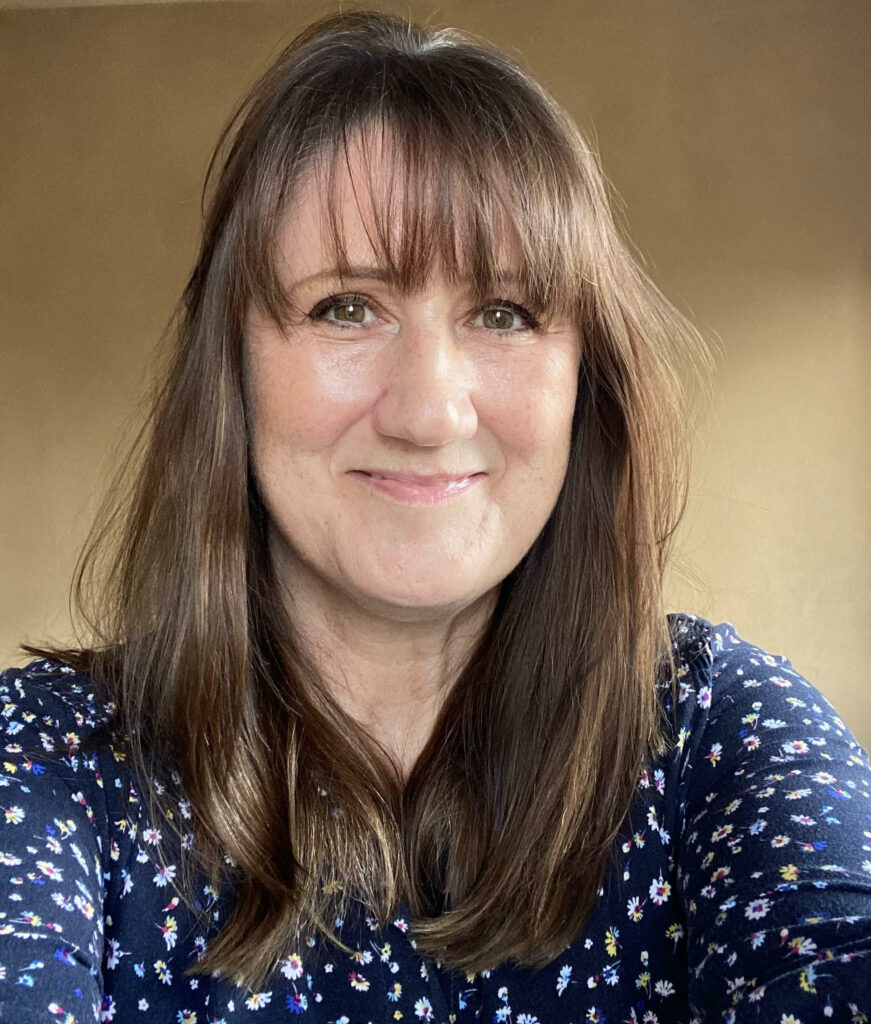
Reframe what is happening, suggests Amanda, and make a case for the positive. ‘Look at all the green, clean initiatives, like renewable energy sources, reductions in fossil fuel use and sustainable farming projects, that are being adopted,’ she says. ‘Try to view the situation optimistically. Global leaders, governments and agencies are working together, taking climate threats seriously and taking action.’
Connect with others
Talk about it, urges Megan. ‘By connecting with others, we remove the emphasis on the individual,’ she says. ‘Talk about climate change, how it makes you feel and what you want to do about it. Remind yourself you feel these difficult emotions because you care. You care about the planet, about different species, justice, equality and future generations.’
Support Sufferers
Be there for sufferers of climate change depression, says Amanda. ‘Listen to their worries and fears, validate how they feel, seek out a support group and go with them or suggest they work with a coach, therapist or counsellor,’ she advises. ‘Adapt your lives together so you both have a meat-free day a week, buy sustainable clothes, pick up litter, spend time in nature and plant your own fruit and vegetables.’
Get Help
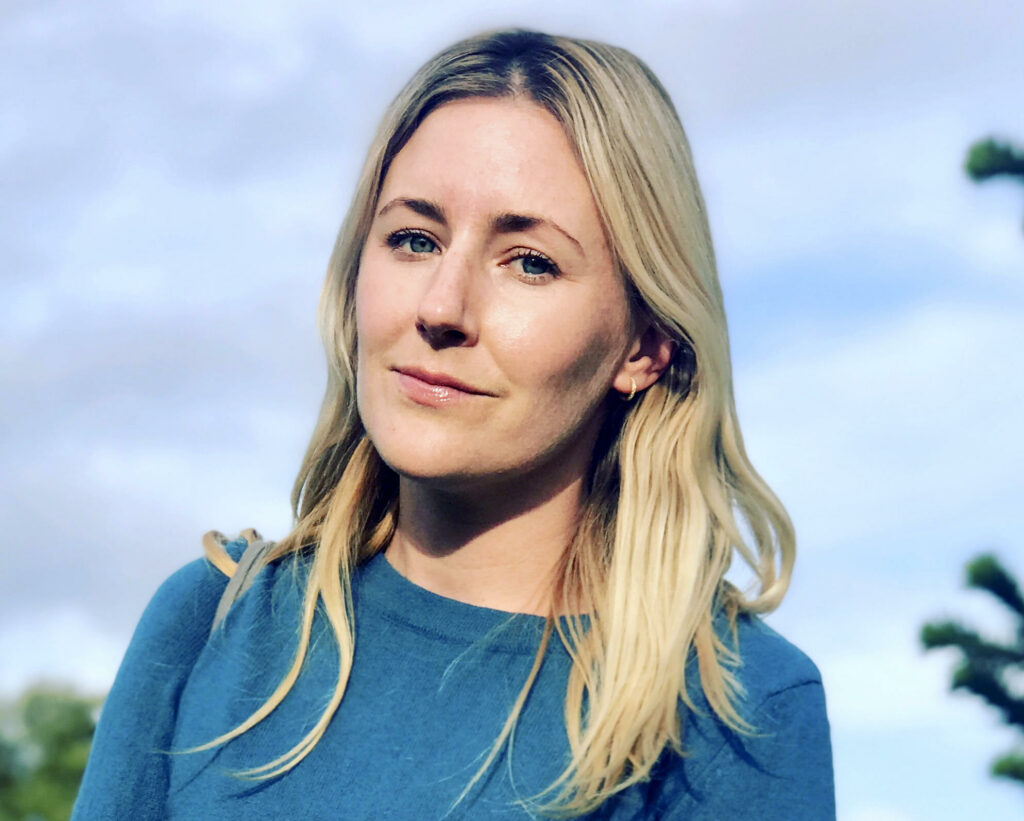
Depression and anxiety love isolation, points out Megan. ‘It’s important to get support if you are experiencing climate crisis depression. By seeking help from a psychologist or a doctor, those suffering can get the support they need and learn to develop tools to manage and cope. It’s important to normalise talking about the emotions that affect us.’
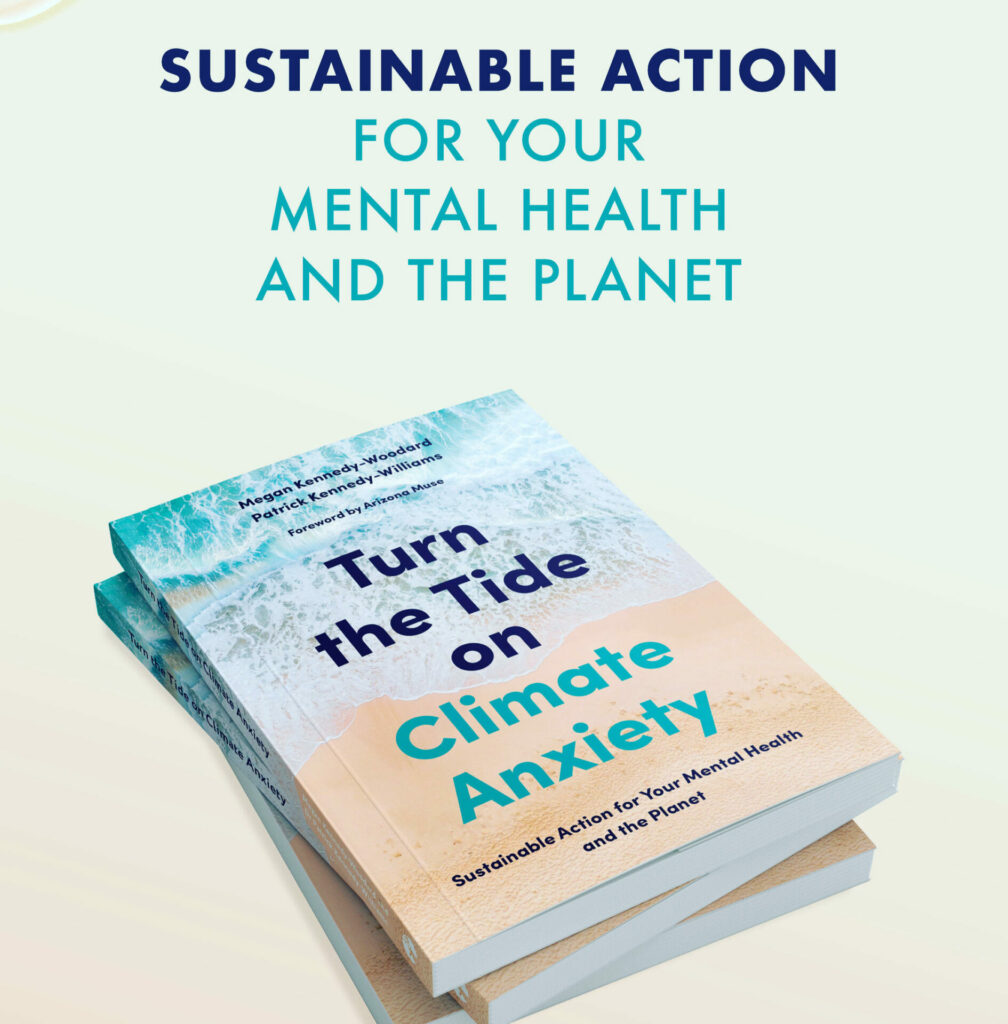
Think Small
Make massive projects into smaller tasks, suggests Amanda. ‘Using big paper and coloured pens, have a brainstorm. Break big projects down into smaller, mini goals. Identify the people and money needed, actions that need to be taken and set some clear and manageable deadlines. Then start to take action and be sure to celebrate each mini project as it is achieved.’
Practise Self-Care
Accept that you’re as important as anyone else, says Amanda. ‘Keep hydrated and well-rested,’ she advises. ‘Move, exercise and stretch, and meditate to keep your mind strong. Surround yourself with positive people, smile and laugh and be positive, even when you don’t feel like it. Set boundaries and adopt a healthy work/life balance.’













